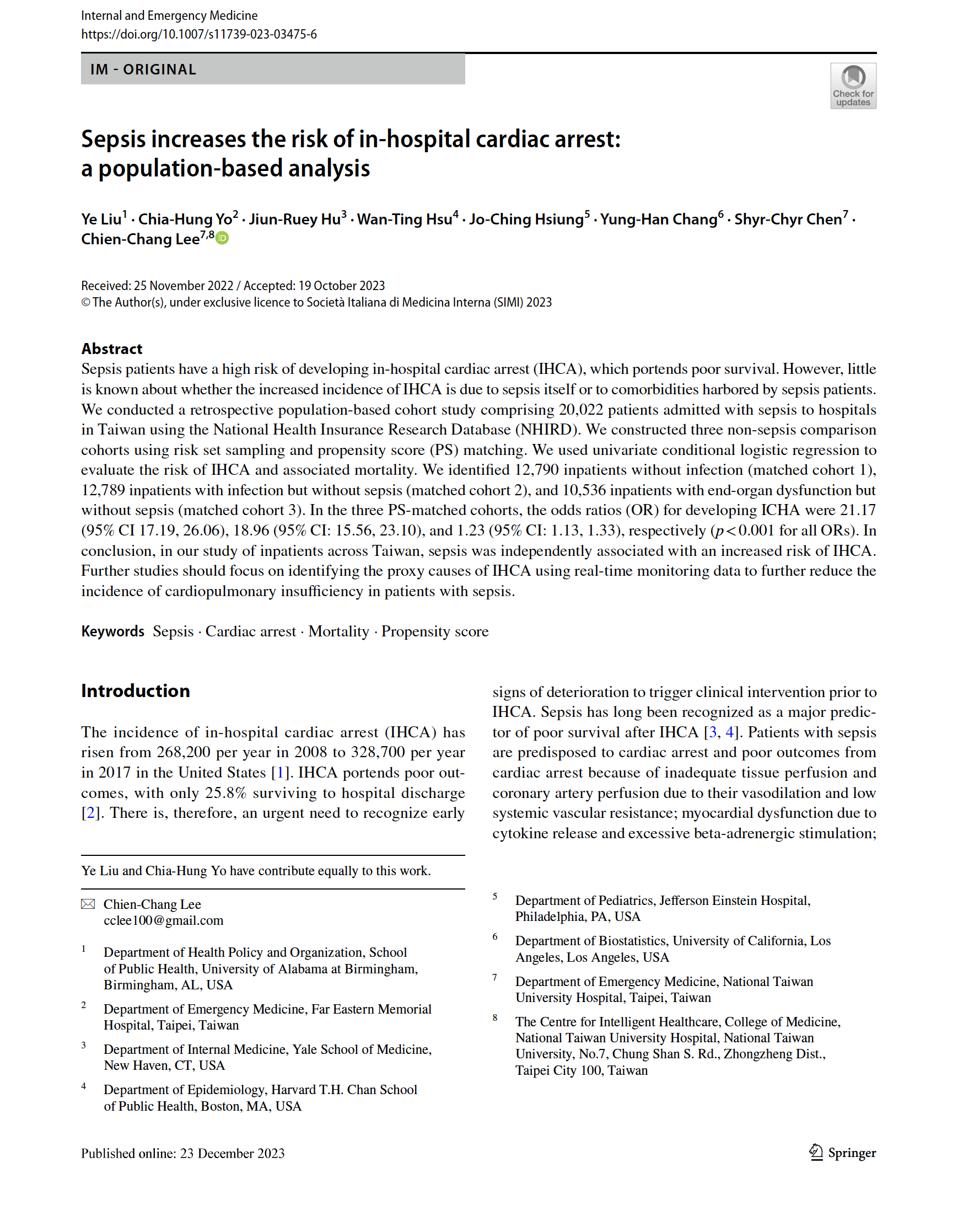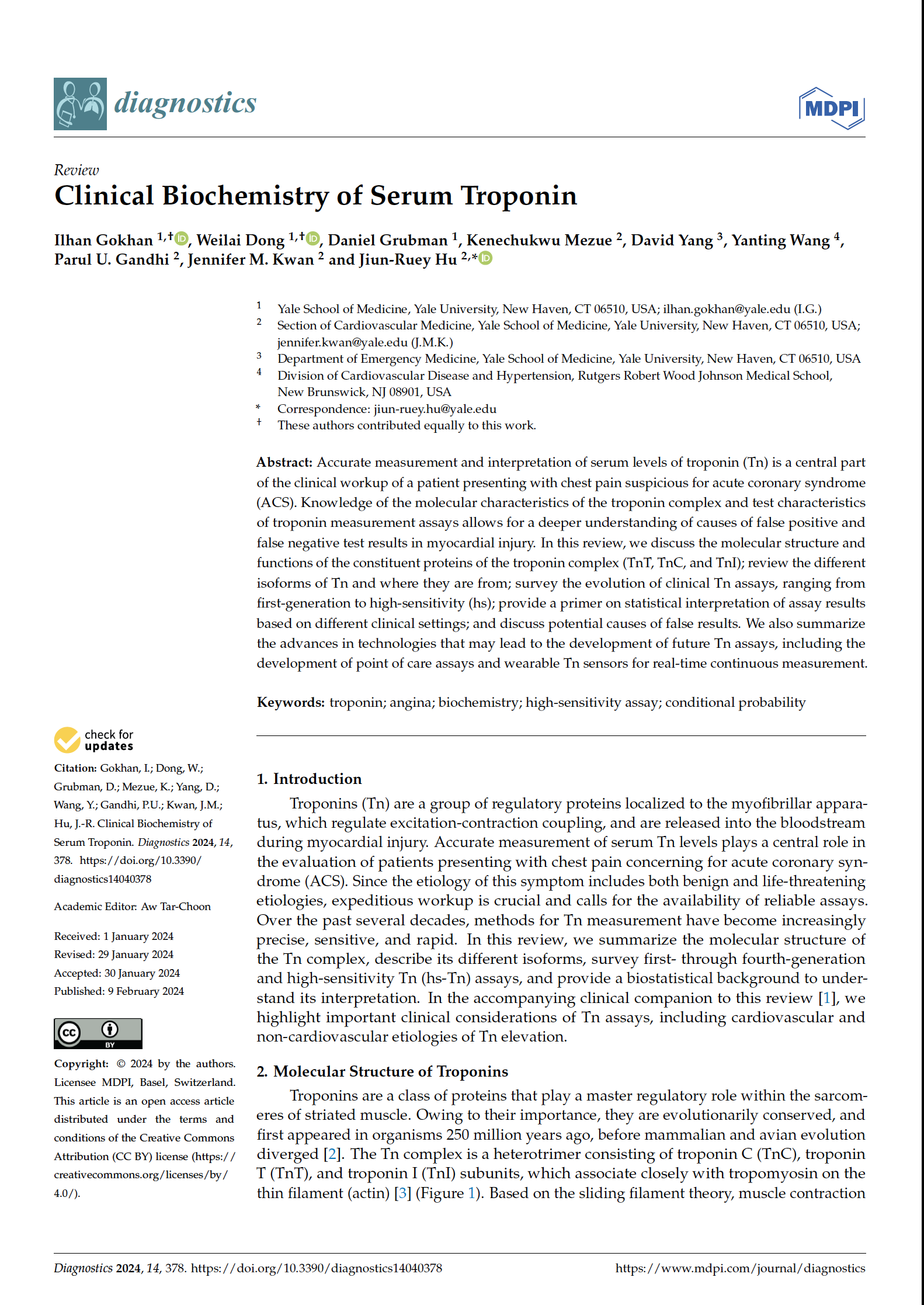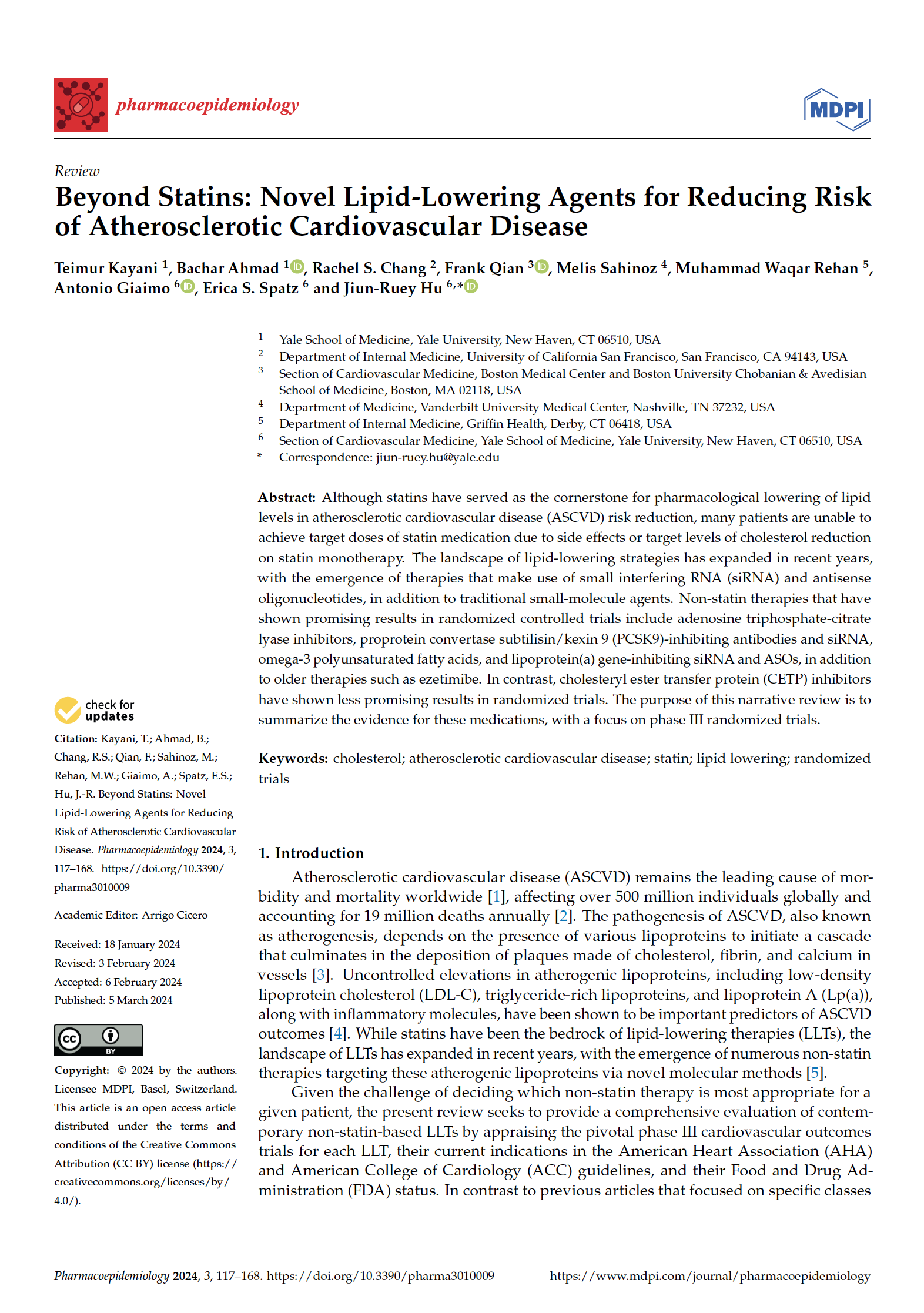📝 Abstract
Sepsis patients have a high risk of developing in-hospital cardiac arrest (IHCA), which portends poor survival. However, little is known about whether the increased incidence of IHCA is due to sepsis itself or to comorbidities harbored by sepsis patients. We conducted a retrospective population-based cohort study comprising 20,022 patients admitted with sepsis to hospitals in Taiwan using the National Health Insurance Research Database (NHIRD). We constructed three non-sepsis comparison cohorts using risk set sampling and propensity score (PS) matching. We used univariate conditional logistic regression to evaluate the risk of IHCA and associated mortality. We identified 12,790 inpatients without infection (matched cohort 1), 12,789 inpatients with infection but without sepsis (matched cohort 2), and 10,536 inpatients with end-organ dysfunction but without sepsis (matched cohort 3). In the three PS-matched cohorts, the odds ratios (OR) for developing ICHA were 21.17 (95% CI 17.19, 26.06), 18.96 (95% CI: 15.56, 23.10), and 1.23 (95% CI: 1.13, 1.33), respectively (p < 0.001 for all ORs). In conclusion, in our study of inpatients across Taiwan, sepsis was independently associated with an increased risk of IHCA. Further studies should focus on identifying the proxy causes of IHCA using real-time monitoring data to further reduce the incidence of cardiopulmonary insufficiency in patients with sepsis.


